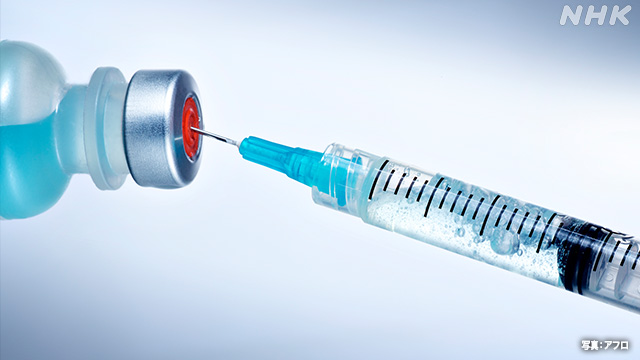A survey of the new coronavirus vaccine in 15 countries around the world, including Japan, found that an average of about 70% of the respondents answered that they agreed to the vaccination.
In October, the World Economic Forum, known as the organizer of the Swiss Davos Conference, and Ipsos, a private research firm, targeted more than 18,000 people in 15 countries, including Japan and the United States, with the new coronavirus. We conducted an awareness survey on vaccines on the Internet.
According to this, an average of 73% of the 15 countries answered that they "agree" with vaccination, and 27% answered that they "disagree".
Regarding the reasons for disagreement,
▽ "concerns about side effects" was 34%
▽ "clinical trial progressed too fast" was 33%
▽ "no effect expected" and "opposed to the vaccine itself" were 10% respectively.
Looking at the percentage of those who agreed to vaccination by country,
▽ India was 87%
▽ China was 85%, which exceeded 80
%
▽ United
Kingdom 79%
▽ Japan 69%
▽ United States At 64%
▽ Among them, France was the lowest at 54%, highlighting the differences in consciousness between countries.
In Japan, 62% of the respondents disagreed with "concerns about side effects," which is more than double that of the United States, which had the lowest concerns about side effects. ..
In Japan, 13% of the respondents answered that "clinical trials are progressing too fast" and "no effect can be expected", and 4% answered that "I have a low risk of getting corona". It has become.
The World Economic Forum said that the percentage of people who agreed was down 4 points compared to the survey conducted in August, and said, "It is noteworthy that the credibility has decreased at the time when vaccination is about to begin. It's a good thing and a sad thing. It's imperative that governments and businesses work together to earn their trust. "

